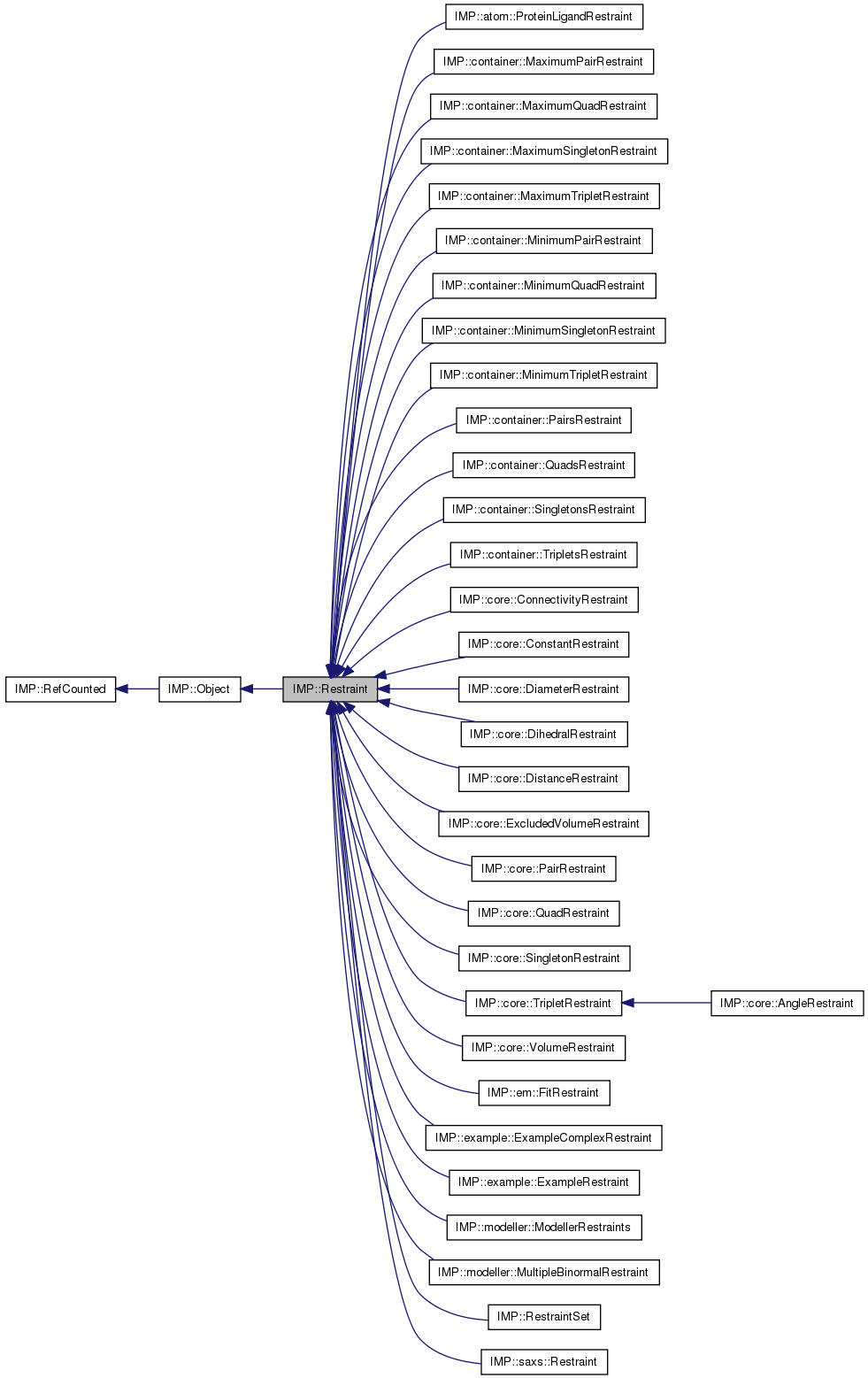Restraints should take their score function or UnaryFunction as the first argument. Restraints which act on large numbers of particles should allow the particle list to be skipped in the constructor and should provide methods so that the set of particles can be modified after construction.
A restraint can be added to the model multiple times or to multiple restraint sets in the same model.
Physical restraints should use the units of kcal/mol for restraint values and kcal/mol/A for derivatives.
Restraints will print a warning message if they are destroyed without ever having been added to a model as this is an easy mistake to make. To disable this warning for a particular restraint, call set_was_used(true).

Public Member Functions | |
| def | __disown__ |
| double | evaluate (bool calc_derivs) const |
| Return the score for this restraint for the current state of the model. | |
| bool | get_is_part_of_model () const |
| Return true if this particle is part of a model. | |
| Model * | get_model () const |
| Return the model containing this restraint. | |
| ObjectsTemp | get_output_objects () const |
| Restraints cannot update other objects. | |
| ParticlesTemp | get_output_particles () const |
| Restraints cannot update other particles. | |
| Restraint (std::string name="Restraint %1%") | |
| virtual void | set_model (Model *model) |
| The restraint can override this in order to take action when added to a Model. | |
Interactions | |
Certain sorts of operations, such as evaluation of restraints in isolation, benefit from being able to determine which containers and particles are needed by which restraints. | |
| virtual ContainersTemp | get_input_containers () const =0 |
| virtual ParticlesTemp | get_input_particles () const =0 |
| virtual ParticlesList | get_interacting_particles () const =0 |
Incremental Evaluation | |
When optimizers move the particles a few at a time, scoring can be made more efficient by incremental score evaluation. To do so, a Restraint must implement Restraint::get_is_incremental() so that it returns true and implement Restraint::incremental_evaluate() to do the following
and | |
| virtual bool | get_is_incremental () const |
| Return true if the incremental_evaluate() function is implemented. | |
Friends | |
| template<class T > | |
| void | IMP::internal::unref (T *) |
| double IMP::Restraint::evaluate | ( | bool | calc_derivs | ) | const |
Return the score for this restraint for the current state of the model.
model->evaluate(RestraintsTemp(1,this), calc_derivs)
| virtual ParticlesTemp IMP::Restraint::get_input_particles | ( | ) | const [pure virtual] |
Given that the containers are up to date.
| virtual void IMP::Restraint::set_model | ( | Model * | model | ) | [virtual] |
The restraint can override this in order to take action when added to a Model.
Users should generally not call this method directly; instead they should just use Model::add_restraint() to add the restraint to the Model.
Restraints that want to take action when they are added to the model can override this method (but be sure to call Restraint::set_model() to set the actual model pointer).